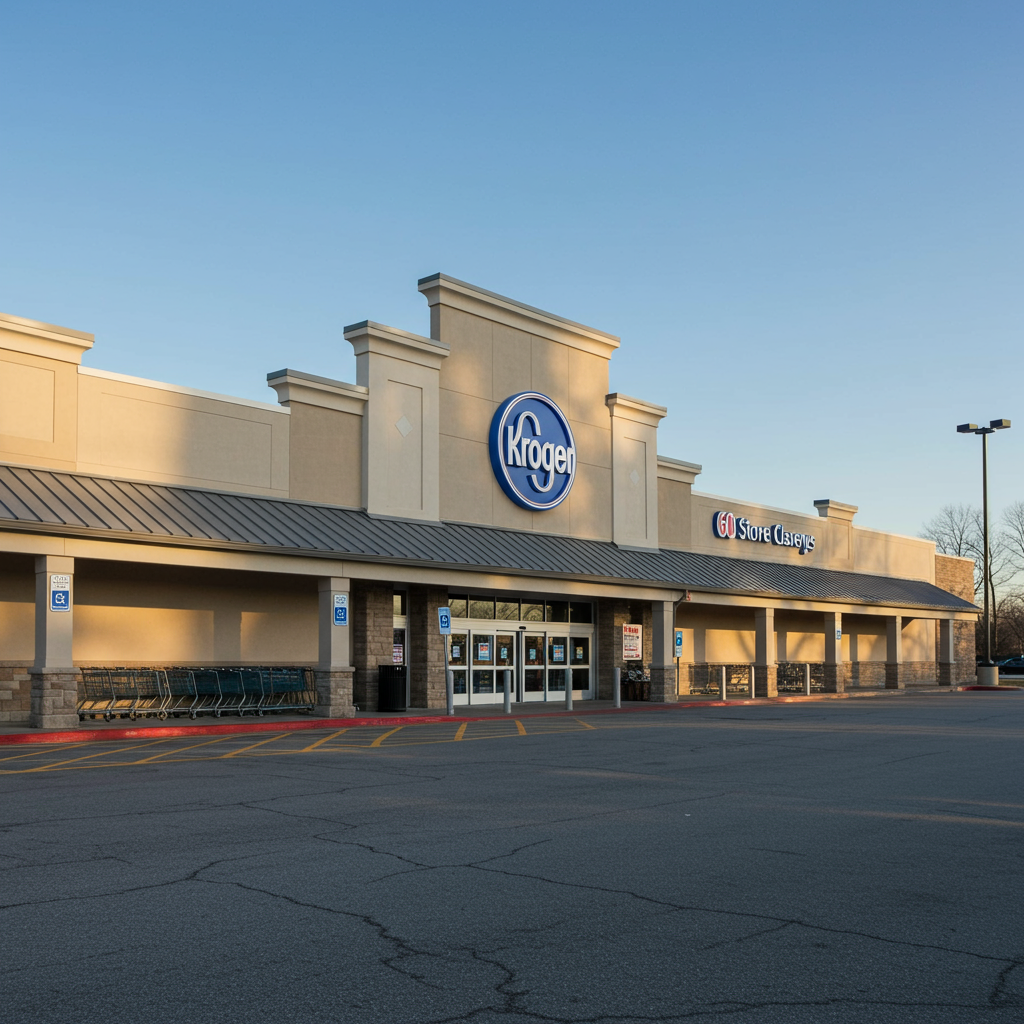Kroger, one of America’s largest grocery retailers, has announced plans to close approximately 60 underperforming stores across the United States over the next 18 months. The news, shared by the company on June 20, impacts about 2% of Kroger’s total 2,731 locations that were operational at the start of its fiscal year.
The decision to close these locations is primarily driven by their unprofitability, as explained by Interim CEO Ron Sargent. These specific stores, spread across various states, are being shuttered as part of a strategic effort to optimize the company’s store fleet.
Kroger anticipates a “modest financial benefit” from these closures, according to its first quarter 2025 sales report. The company plans to reinvest the savings generated back into the business, specifically to enhance the customer experience in its remaining and future stores.
Importantly, Kroger has stated it will offer roles at other nearby stores to all employees currently working at the locations designated for closure, aiming to minimize job losses for its associates.
Despite the targeted closures, Kroger remains committed to growth and investment. The company reaffirmed its plan to spend between $3.6 billion and $3.8 billion this year on capital expenditures, including building new stores and expanding or renovating existing, successful locations.
Which Kroger Locations Are Slated for Closure?
While Kroger has not released a comprehensive, official list of all 60 stores planned for closure, several specific locations have been identified through local media reports and communications from organizations like the United Food & Commercial Workers (UFCW) Local 400 union chapter.
It’s important to note that this is a running list based on publicly available information and may not represent the full scope of Kroger’s closure plans.
Here is a list of Kroger stores reported to be closing:
Georgia:
2452 Morosgo Way, Atlanta, GA; closing July 19 (per Fox 5 Atlanta and Atlanta News First)
11877 Douglas Road, Alpharetta, GA; closing Aug. 16 (per Fox 5 Atlanta and Atlanta News First)
3479 Memorial Drive, Decatur, GA; closing Sept. 13 (per Fox 5 Atlanta and Atlanta News First)
3855 Buford Highway, Brookhaven, GA; closing Oct. 18 (per Fox 5 Atlanta and Atlanta News First)
Illinois:
3311 N. Sterling Ave., Peoria, IL; closing about Aug. 2 (per Peoria Journal Star)
Kentucky:
4211 S. Third St., Louisville, KY (per Louisville Courier-Journal)
Tennessee:
1664 East Done Drive, Kingsport, TN; closing Sept. 19 (per UFCW Local 400)
Texas:
1707 W. University Drive, McKinney, TX (per Dallas Morning News and WFAA)
3410 Gulf Fwy, Dickinson, TX; closing date June 10 (per KTRK and The Galveston County Daily News)
Virginia:
1904 Emmett Street, Charlottesville, VA; closing Aug. 22 (per UFCW Local 400)
466 South Cummings Street, Abingdon, VA; closing Sept. 19 (per UFCW Local 400)
West Virginia:
* 2908 State St., Gassaway, WV; closing date Aug. 22 (per UFCW Local 400)
This list will be updated as more specific closure locations are publicly confirmed.
Kroger’s Closures Part of a Wider Retail Trend
Kroger’s decision to close underperforming stores mirrors a larger trend observed across the U.S. retail landscape in 2025. Analysts estimate that over 2,500 retail stores across various sectors are expected to close this year alone, a number influenced by factors ranging from changing consumer habits to financial restructuring and bankruptcies.
Major chains like Rite Aid, facing significant challenges and multiple bankruptcy filings, have announced hundreds of closures. Other prominent retailers reducing their physical footprint include Macy’s, Walgreens, Dollar Tree (specifically Family Dollar locations), Party City, Joann, and others. This indicates that many retailers are strategically optimizing their store portfolios to focus on their most profitable locations.
While some chains are shrinking their footprint, others like Walmart, Costco, and Target continue to expand. For Kroger, these targeted closures allow them to shed underperforming assets and redirect resources towards improving the overall shopping experience and investing in areas with stronger growth potential.




